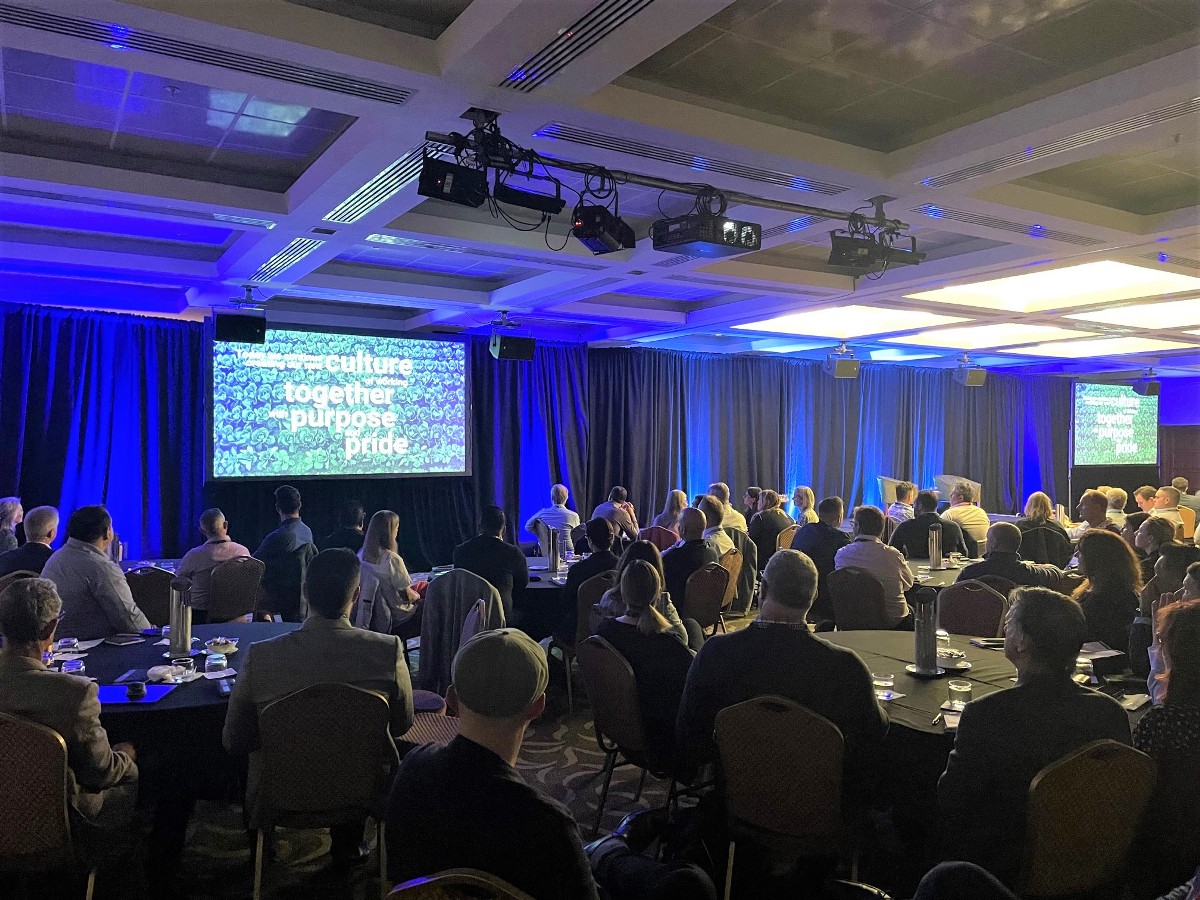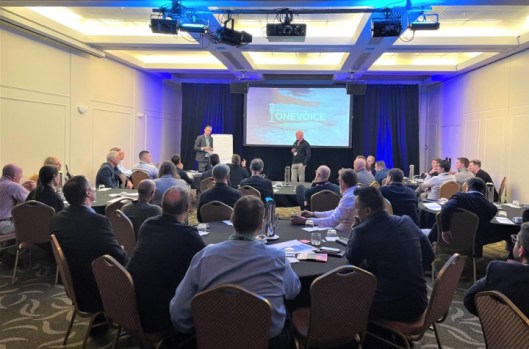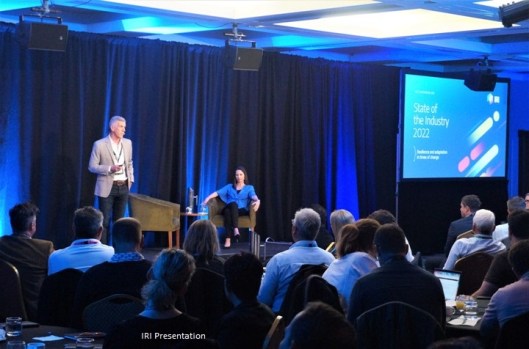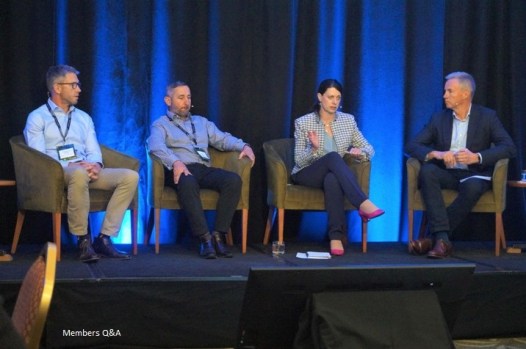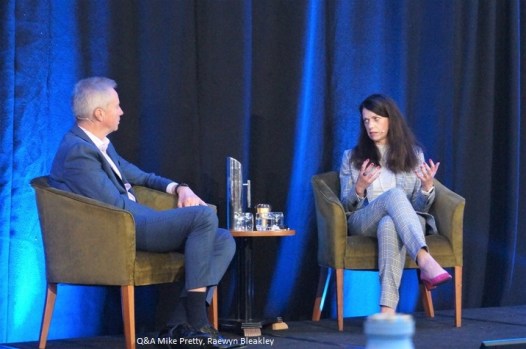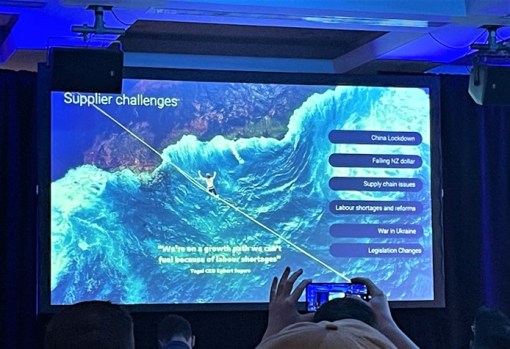More than 200 delegates from food and grocery companies around New Zealand were treated to thought-provoking and informative speakers at the annual conference of the NZ Food & Grocery Council, One Voice, in Queenstown in early November.
From the (inspiring, sad, funny) presentation by celebral palsy sufferer and international speaker Cam Calkoen, the tales of entrepreneurship and perseverance by 42 Below, Ecoya, and Trilogy founders Geoff Ross and Justine Troy, and Nick Ashill’s story of endurance and overcoming the odds, to Sacha Coburn’s delightful takes on leadership potential and extreme ownership, and Theresa Gattung’s valuable tips on business innovation and governance – the conference had it all.
But that was just the lighter side of things.
There was plenty of the serious side of the business of FMCG to make this another wish-I-had-gone-after-all conference.
Jodie Farrell, Costco’s GM Packaged Food Australia NZ, gave a rundown on their NZ operation, including that it has many fewer SKUs than competitors, but this allows it to concentrate on “amazing quality and value”.
Delegates were treated to a sneak preview of IRI’s State of the Industry announcement, with Craig Irwin and Debbie Simpson-Pudney running delegates through how the surge in online spending since Covid has taken online forward five years, and how sustainability is such a big thing for consumers “it’s critical the industry starts to own this”.
Breakout sessions are always among the most popular on the programme, and this year was no exception. They were all about industry relations, where members could connect with FGC’s Industry Relationships Working Group around what they would like to focus on with each retailer, along with member engagement. Sessions on Foodstuffs South Island and North Island, Woolworths NZ, other retail, and member engagement all drew spirited discussion.
Code of Conduct
One eagerly awaited session was the address by MBIE’s Deputy Secretary (Building, Resources and Markets), Paul Stocks, who updated delegates on where the Code of Conduct and the Grocery Commissioner were at. He said they were both part of the Grocery Industry Competition Bill, which is due to be introduced to Parliament next month. The powers of the Commissioner would be “quite extraordinary”, with the ability to review the workings of the market each year and to make recommendations to the Government a “really powerful tool”.
Countdown sent two people in place of MD Spencer Sonn (who had to cancel at the last minute) to give members an update on how they were travelling: Steve Mills, Commercial Director – Packaged Goods, Drinks, Everyday needs & Replenishment, and Pieter De Wet, Commercial Director – Fresh & FoodCo, crossed a wide range of topics, including a future focus on digital transformation, speed of delivery, investments in regenerative farming, progress on sustainability on private label packaging, and reimagining the end-to-end fresh value chain.
Foodstuffs did not attend.
FGC’s new Chief Executive
But of all the presentations, members seemed keenest to find out more about new FGC Chief Executive Raewyn Bleakley. Apart from one-on-one’s during networking sessions and lunch breaks, the best opportunity was in an enlightening Q&A on stage with FGC Chair Mike Pretty. They covered Raewyn’s career and how it has set her up for taking the reins of NZFGC.
She said understanding what members wanted and how they worked was key for FGC, and she wanted to do that quickly, being aware of opportunities to do things that are valued by them, such as widening or refining what the working groups are doing. She was impressed with how FGC has been operating, how knowledgeable and engaged members are about the issues they face, how genuine the intent of the industry is to have good outcomes around sustainability and consumers getting fairer prices, and how they care about things not being wasted on bureaucracy. She said her challenge was to get across this and to represent it really well on members’ behalf. “The real exciting challenge” was working with the membership, the Board and the Government to make sure the market changes will be “truly effective”.

